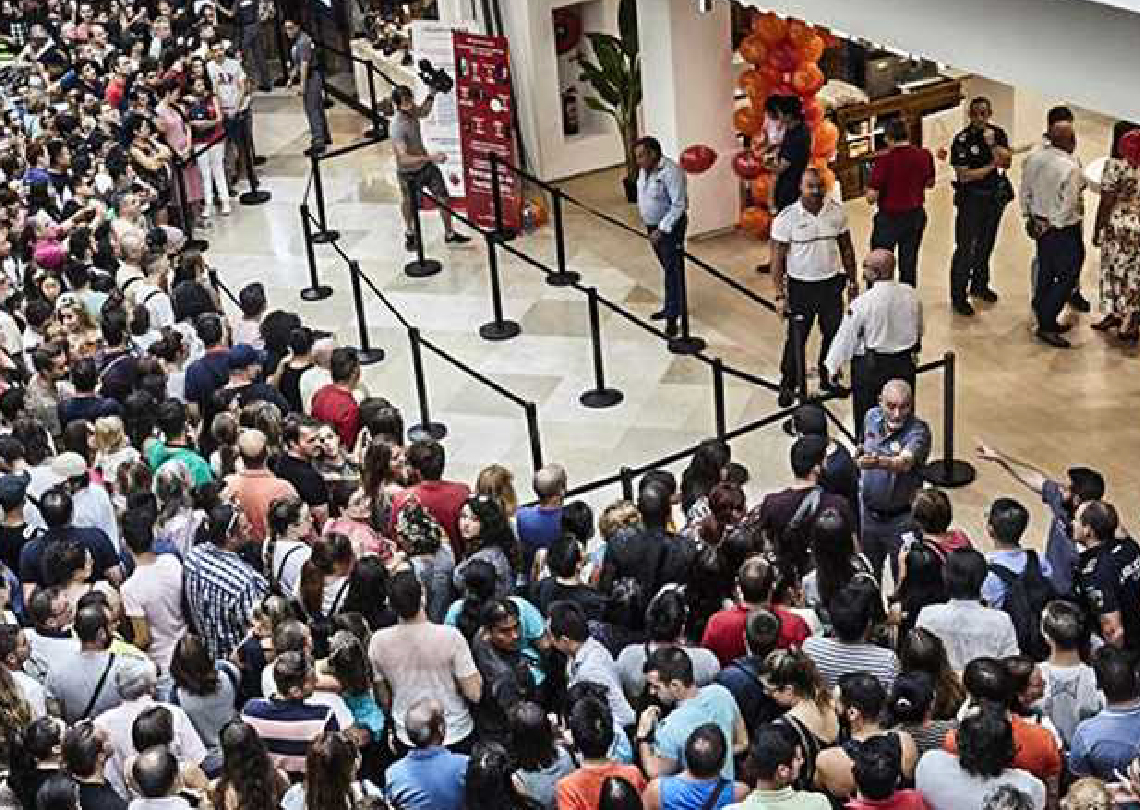The Magic behind AliExpress’ international expansion of physical stores

Oftentimes when we reflect on the magic behind an experience, we describe how it felt, how it looked, and how it smelled – all the elements that appeal to our senses. And now, consumers are looking to experience this magic everywhere.
Taking note of this, many retailers are directing their efforts to construct stores in large metropolitan areas – each designed in a manner to deliver magical experiences to their customers.
Personally, whenever I have visited a retailer that creates an immersive experience and provides high-levels of customer service, I have always returned for future purchases and recommended them to my friends and family.
As a prime example AliExpress, the Chinese online retailer owned by Alibaba, has made delivering this ‘magic’ their main priority with the opening of their first physical location in Europe. Located in Madrid in the Xanadu shopping center, the store is focused on providing experiential shopping and is stocked with their most-demanded products.
The recent Global Retail Trends 2019 report from KPMG highlighted that over 78% of consumers are willing to spend money on an experience or an event which suggests retailers must take action to provide more of what’s considered “retailtainment”. This statistic is indicative that consumers are focusing more on the experience as they are on the purchase.
Recognizing the value of physical interaction in retail, AliExpress has invested in the Xanadu shopping center to helps build the brand’s profile by hosting events with influencers, offering drone flying areas, and providing free coffee to its customers.
And they’re off to a great start. The opening weekend saw thousands of Spanish consumers lined up outside the store in Madrid. More recently, AliExpress announced that they would be expanding into Brazil.
The expansion of AliExpress’ physical spaces, outside of China, has been driven by their belief in the following:
Having an omnichannel experience is non-negotiable
The first part of how AliExpress delivers the ‘magic’ that consumers desire relies in their ability to unify their online shopping experience with their physical space.
In fact, Rubén Bautista, Director of Operations of AliExpress Spain, stated, “We firmly believe in [an] omnichannel business in which experiential stores support the online experience and vice versa”.
The intention of their omnichannel, or “new retail”, strategy is to help increase their credibility and build trust with Spanish consumers. Spanish consumers can now purchase products online, or they can experience the products and receive recommendations in-store about the products before purchasing.
Considering that 30.8% of consumers want to see or feel an item in-person and 29.9% of consumers want their products right away (ripen 2018), having a physical store provides consumers with what they want exactly when they want it.
Knowing this, many digital retailers are now blueprinting and building out their own physical locations to accommodate the needs of these consumers. For instance, just last year Amazon piloted a pop-up fashion store in central London and since this trial, Amazon is planning to open up ten more shops throughout the UK. Their primary focus has been delivering more of the “next best thing for the customer”.
On the other hand, according to the National Retail Federation, 65% of consumers enjoy the BOPIS (Buy Online Pick Up In Store) experience and state that it has improved their shopping experience, and luckily, AliExpress offers this also. Along with the ability to come in and order a product, Spanish consumers can also step into the store and pick up their latest online purchase.
In short, for the digital retail giant, AliExpress, integrating their online and offline channels helps them remain top of mind and provide ample shopping options for their customers.
Technology needs to be used to enhance the customer’s experience
Another factor that AliExpress relies on for delivering a great customer experience is technology.
During the opening of AliExpress’ Madrid location, many of the sales associates or employees were focused directly on assisting customers - demonstrating the use of products and helping with distribution of free products for those who were first in line.
How?
Instead of having traditional checkout lines, AliExpress equipped their staff with smartphones and tablets to help them take the orders of their customers more easily. . Normally, AliExpress’ delivery times take 15-45 business days in Spain, but at the AliExpress plaza, consumers can expect to receive their orders within 3 business days.
Having their employees directly target interaction with customers enables the customer to act (e.g. purchase a product, recommend to a friend, etc.) faster and enhances their emotional connection to the brand. According to Smart Insights’ report How to Actually Build Relationships with your Customers, when customers feel an emotional connection to a brand, their lifetime value can increase by 300%.
What does this mean for you as a retailer?
Change, while it’s important, doesn’t have to be as extreme as you think. While AliExpress has done a great job at offering consumers what they want at the time they want it, you can do a variation of the same.
If you’re interested in understanding the changes and challenges that have caused retailers like Warby Parker, Amazon, and Bonobos to evolve, you can read more in our ‘From Clicks to Bricks’ whitepaper. It discusses how these retailers are using face-to-face interaction to build trust, promote brand values, and increase customer loyalty.
Like the AliExpress, this allows you to free up your staff from taking care of rudimentary tasks and allows them to focus on engaging with the customer.
You don’t have to do it alone…
Change can seem intimidating, but it’s not a one man job.
Glory has helped retailers and financial institutions with front-end solutions tailored to make a difference among their customers, staff, and simply how cash is handled. Let us help you make those changes to advance as retailer.